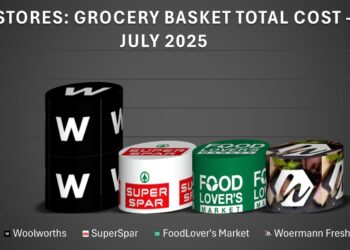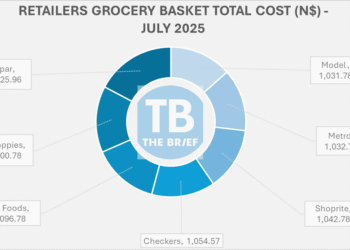
The World Food Programme (WFP) Namibia reached 24,558 people in December 2024, addressing critical food security and social protection support.
The WFP Namibia Country Brief reports that US$10.6 million (N$209 million) is required to meet funding needs from January 2024 to June 2025, representing 60% of the total needed resources.
This comes as on 5 December the Government of Japan introduced a commodity voucher programme aimed at supporting 27,000 vulnerable individuals in the Ohangwena and Kunene regions.
The initiative prioritises households impacted by the El Niño-induced drought, with a focus on child-headed, female-headed and elderly-headed households.
“The vouchers, redeemable at local retailers, are expected to improve dietary diversity, enhance household purchasing power, and ultimately reduce under-five malnutrition rates,†said the WFP Namibia Country Brief.
The report noted this programme aims to mitigate the impacts of prolonged climatic shocks and support recovery efforts in drought-affected communities.
A joint WFP and USAID team assessed progress on a Chevron-funded project at Kaoko-Otavi Combined School in the Kunene region.
“With financial support from USAID, WFP drilled a solar-powered borehole at the Kaoko-Otavi Combined School providing clean water access to the school and community,†noted the WFP.
Additional components of the project include water tanks to ensure sustainable water management and a community garden to enhance nutrition and livelihoods.
During Human Rights Day and Namibia Women’s Day celebrations at Outapi, Acting Country Director Tiwonge Machiwenyika participated in the launch of the Social Protection Booklet, a collaborative initiative supported by WFP and other United Nations Namibia agencies.
“The booklet, developed with support from WFP and other United Nations Namibia agencies, serves as a comprehensive guide to building inclusive, resilient, and sustainable social protection systems. It consolidates efforts to ensure that no one is left behind in the pursuit of equity and social justice,” he noted.
Machiwenyika highlighted how WFP continues to play a leading role in driving innovation within Namibia’s social protection system.
“Through strong partnerships, WFP is advancing equity and resilience, helping to create a more inclusive society that addresses the needs of the most vulnerable. The launch marked a significant milestone in the collaborative efforts of government and development partners to enhance the social protection landscape in Namibia,” he said.











